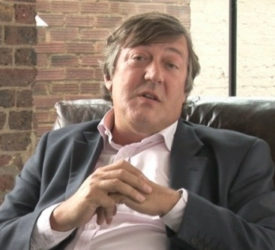Monthly Archives: September 2016
Some terms have a technical meaning and a common meaning, and the common meaning has a “normative slant.” The technicians know how to use the terms in the technical sense. But sometimes the common meaning slips in, in such a way that using the term ends up making two arguments with one word.
If one isn’t careful, using such terms can lead to confusion. Who’s to blame is not always clear. It could be the technician who uses the term or it could be interlocutor who misinterprets or misidentifies the technical meaning.
I have a list of three terms here, in ascending order of how knowledgeable I am about the technical definitions.
THE TERMS.
Marginal.
Title(s) of technicians. Economist; political scientist.
Technical meaning. The extra amount one is willing to spend to get the next widget. Or, somewhat less technically but still bound up with what technicians mean: the amount of change a given policy will bring about in a given direction.
Common meaning. An amount that is unimportant or trivial.
Normative slant to the common meaning. Mostly neutral, but it can swing either way depending on whether “amount” in question is good or bad.
Possibilities for confusion. When people speak of changes “on the margins” or assert that such and such policy will bring about “marginal” changes, they may have in mind the technical meaning. But sometimes they let slip in or leave unaddressed the common meaning. If it’s a somewhat harmful, but in his/her opinion necessary thing technician is advocating, he/she leave themselves open to the charge that he/she is minimizing the harm.
Sometimes, too: The size of the margin–not whether a marginal change will be brought about–is really what is under dispute. Simply pointing out that change (for the better or worse) will occur along some margin does not 1) demonstrate how much the change will be and 2) whether the change is worth it.
Exploitation (Marxist version).
Title(s) of technician(s). Marxist theorist; activist.
Technical meaning. Expropriating the surplus value of a worker to pay the profits of the person to whom the worker sells his or her labor. (Other technicians may have other meaning, but I’m focusing on the Marxist version.)
Common meaning. Somehow compelling someone to do something that they don’t want to do and that harms them.
Normative slant to the common meaning. Bad.
Possibilities for confusion. One sometime activist I knew who was steeped in Marxist theory often used the word “exploitation” to great emotional effect when describing the treatment of workers and the need for a revolution. And yet if you bring up examples of workers being treated well or workers as a whole benefiting from the prevailing economic system, then that same Marxist will fall back on the more technical meaning of “exploitation” and explain what they really meant was that the workers’ surplus value, etc., etc.
Historical.
Title(s) of technician(s). Historian.
Technical meaning. Representing the phenomenon of change over time. I believe it can represent persistence over time as well. The key point is that change happens (or doesn’t) but it can be explained by people’s decisions or by contingent, unforeseen happenings. This is probably a modern conceit. Historians in earlier times sometimes appealed notions of “forces of history” or “cycles of history” or “spirits of history” (e.g., Zeitgeist, Volksgeist, Ortgeist). I’m not saying my definition is true for all times and places and people, just that it’s the prevailing definition among those who were trained professionally in history and abide by professional history’s norms.
Common meaning. True and factual story of what happened.
Normative slant to the common meaning. Good.
Possibilities for confusion.There are at least two ways we sometimes commingle the technical and common meanings. One is simply using the common meaning when it suits us and then relying on our status (such as it is) of “historian” to claim that it’s truth.
The second is to speak as if merely demonstrating that a given belief or position or attitude is “ahistorical” we have therefore invalidated it. This is wrong, or at least “confusing,” because it assumes that historicality is the only measure by which to judge things. It judges people by the standards of professional historians even if those people did not claim to be abiding by those standards in the first place.
CONCLUSION.
Apologies.
There’s a lot I don’t know about the above terms. I’m least confident with “marginal.” Not being an economist or trained in economics, I suspect I’ve got it wrong on some level. So please correct me.
I feel a little bit more confident about “exploitation” and Marxism. But to be clear I’ve never read Marx to any significant degree, and most of what I “know” comes from reading Marxist-inspired historians and talking with people like my sometime activist acquaintance. And perhaps the “confusion” I talk about is just an anecdatum from my activist acquaintance.
Even with “historical” I might be off despite my training. In my anecdotal observation and experience, historians aren’t usually trained in grad school to examine the assumptions of history. Instead, grad school socializes them into the norms of the profession, and among those norms are the assumptions I mention above. My experience is no exception: I’ve given these assumptions some thought, but haven’t really investigated them systematically.
Envoi.
My takeaway, though, stands. We should beware how we use technical terms. It’s not only that there’s room for confusion, there’s also room for deception or at least lazy argumentation. And while the blame can’t always rest with the technicians, it sometimes can.
I know that I often talk about (and complain about) the liberal skew of Hollywood productions. Which I think is fair, but I should also point out when they do something I would like to see more of. I had an email exchange recently about politics and entertainment which reminded me of a post I’d long wanted to write about The Good Wife. This post assumes that you have not watched the show, and don’t care to, and will have some relatively inconsequential (or predictable) spoilers.
The basic premise behind The Good Wife is Alicia Florek as a protagonists whose husband is caught in a sexy political scandal, forcing her to transition from a Stay-At-Home-Mother back into the workplace, in this case a law firm. For the most part, though, it’s a political and legal drama with Alicia at the center of it, both in court and with her husband on the political stage.
The show takes place in Chicago, which means that almost all of its politics are going to be skewed to the left. Along these lines, it would have been easy and inconspicuous for conservatives to be notably absent and their view either unrepresented or poorly represented and liberal perspectives to be embedded in the show across the board. For the most part, this is how the show ran for the first few seasons. Though even early on, there were exceptions and indications that they weren’t going to stick with that formula.
The show had (basically) three elections over its run, with almost all of the participants being Democrats because Chicago. In all but one race[1], the Floreks found themselves up against somebody running to their left. This served to moderate the Floreks, comparatively speaking, as they pursued white and/or centrist voters[2]. This lead to a decent plot thread wherein a member of the Florek family figured out that they were targeting the white vote specifically against his black opponent. But it introduced a degree of ambiguity that served the show well.
Sometimes shows with politics to go out of their way to make all of the bad guys Republicans[3]. They managed to avoid that by recognizing that when they needed an unexpected racist that it might be better to make him a progressive liberal that everybody in the office looked up to. Little things like that matter, especially given “Family Values Republican actually a sexual deviant” is more a cliche than a twist, at this point.
They also introduced Kurt McVeigh (no relation), a reasonably well-developed rightwing character. He was introduced as a ballistics expert, but became the romantic interest to Diane, the most liberal character on the show. Setting aside political preferences and such, it interwove liberal and conservative characters in a way that I would really like to see more of. It’s not just about having different perspectives represented, but it makes for more entertaining television when everybody in the room doesn’t share the same basic orientation.
Where the show really hit its stride in this regard was in the later seasons, when I think they were running out of ideas to keep the show going. Among other things, they brought in Oliver Platt as a conservative character who hired the firm and used Diane to bounce ideas off of. This lead to a great episode where they talked about RFRA and gay wedding cakes. Platt and company talked about the prospects of a cake baker, and eventually isolated a wedding planner as the best case to find and bring suit. Diane, who fell squarely on the side of gay couples, got the last word. But nonetheless it was well done. And from there, Diane went on to help one of Platt’s intermediaries with a PP Video case that she viewed as a First Amendment issue, much to the chagrin of everybody else at the firm.
Though the above may give a faulty impression, The Good Wife falls squarely to the left, on the whole. But impressive-to-me, they never let that get in the way of telling a good or interesting story. I have multiple motivations for getting on my soapbox on the subject, but the most basic reason I want to see more variety is simply because it can make better stories that way. The legal aspects of The Practice were better than Boston Legal simply by having Helen Gamble (Laura Flynn Boyle) on the show[4]. This doesn’t just apply to legal and political dramas (for those in particular, a skew usually makes narrative sense and there is only one skew they can pull off), but more or less anything where politics is likely to come up.
[1] The exception was the Illinois Governor’s race, wherein Peter was running against Maura Tierney, who was running to his left, and then a general election against Matthew Perry, who played an ideologically nondescript Republican.
[2] Everything in this post is a simplification. They actually spent more time pursuing the black vote, with Peter forming a bond with a black preacher, and so on. But there were two plot threads wherein the Floreks pursued voters that at least some participants were uncomfortable with. Peter’s dogwhistling and later Alicia’s run against a rumored-to-be-gay David Hyde Pierce.
[3] One example, The Event, had a protagonist president and an antagonist vice president, so what were they to do? Why, they decided to make it a unity ticket. That way, the president could be a intimated Democrat and the vice president a Republican. Presto!
[4] Boston Legal did have a couple of conservative characters, but more as foils than anything. Denny Crane was crazy, and Brad Chase was ineffectual. It was – until the end, anyway – better than nothing, but it was what it was.
Man, babies make living life look great. Thanks for that, babies. pic.twitter.com/F9TfJW5QmK
— Cheerios (@cheerios) September 17, 2016
tfw Cheerios comes out as explicitly pro-natalist https://t.co/iaThA2FiVU
— Tamara (@BookOfTamara) September 18, 2016
So hey, about sex and politics. Liberals tend to be both more ambitious and less satisfied with their sex lives than conservatives. Which makes sense, when you think about it. It’s my belief that a lot of the world’s problems can be solved with lowered expectations. Along those lines, does anyone remember this from MADtv?
WASHINGTON—Expressing regret over its reckless decision to infect the Democratic presidential nominee, the virus causing Hillary Clinton’s pneumonia was reportedly terrified Monday after remembering what the Clintons were capable of.
After this, I plan to shift back to less partisan/political posts I swear. But here we are, just a few days after Hillary Clinton’s speech and Mike Pence declined to refer to David Duke as deplorable. At first blanch, that looks really bad, and harkens back to Donald Trump’s refusal to disavow Duke.
The problem is that Pence did disavow Duke. Right before he declined to call him deplorable. So the narrative that there’s no extremist too extreme for Team Trump doesn’t especially hold. We can talk about how Of Course they’re willing to ditch Duke because even in Louisiana he’s polling really badly and how this doesn’t absolve Trump of anything. And that’s all true. The frustrating thing for me, though, is that it leaves me defending Trump again because that’s not how the media is covering it. They’re suggesting that he’s down with Duke.
The question is, though, why didn’t Pence simply say that yes of course Duke is deplorable? Especially given his actual willingness to disavow? I mean, this is easy spit and unlike Trump, Pence is a professional?
I think the answer is this:
Outside Donald Trump's rally in Asheville, NC: A "Deplorable Lives Matter" sign: pic.twitter.com/Fn1YbHFIm9
— Frank Thorp V (@frankthorp) September 12, 2016
And this:
At KSU for Newt's townhall for Trump are three "deplorables" complete with basket. #gapol pic.twitter.com/uvBPbrXxQE
— Aaron Gould Sheinin (@asheinin) September 12, 2016
Which is to say, Team Trump has decided to own the sneer. They’re not worried about offending Duke, they’re worried about tarnishing their rally cry. Which makes sense. Is it a good move? I’m really not sure. It seems more of a batting down the hatches move for a campaign that needs to get to 51%. (It’s also dishonest, since it is reasonably clear that Clinton was talking about half but not all of Trump supporters, but nobody cares cares about that.) But there aren’t a lot of good paths for him, and this is one. It capitalizes on what even the Clinton campaign seems to concede is a mistake.
I can’t imagine such a move would garner my support for a campaign that otherwise wouldn’t have it, but if it were my candidate I could dig The Deplorables as a rallying cry. It could work.
(Of course, me being me, I’d want to work in a Les Deplorables in the spirit of Les Miserables. Classing up the meme and all that. But that might be the style of a candidate I might support. It obviously wouldn’t work for Trump.)
From Stephen Fry in America:
There is one phrase I probably heard more than any other on my travels: ‘Only in America!’
If you bear a Briton say ‘Tch! only in Britain, eh?’ it would probably refer to something that was either predictable, miserable, oppressive, dull, bureaucratic, Queuey, damp, spoil-sporty, or incompetent – or a mixture of all of those. ‘Only in America!’ on the other hand, always refers to something shocking, amazing, eccentric, wild, weird or predictable. Americans are constantly being surprised by their own country. Britons are constantly having their worst fears confirmed by theirs. This seems to be one of the major differences between us.
And here is Fry at an Alabama/Auburn football game:
Controversial 9\/11 Coke display in Walmart removed | WSB-TV
A Coca-Cola display has quickly been removed after it was criticized for depicting New York City’s twin towers.
The World Trade Center towers were destroyed and thousands were killed when two hijacked planes crashed into the towers on Sept. 11, 2001.
BuzzFeed News reported that Shawn Richard tweeted a photo of the display Tuesday while on vacation in Panama City Beach, Florida, with his girlfriend.
“We stopped and stared at it like, ‘Oh my god,'” Richard told BuzzFeed News. “Nobody seemed to be noticing it, it wasn’t very crowded, and I got the feeling that it had just been assembled. So we took some pics and went on our way.”
But were the soft drinks still $3.33 a case? I struggle to get cases for under $4 where I currently am. For $3.33 I’d buy them off a Daesh flag.




